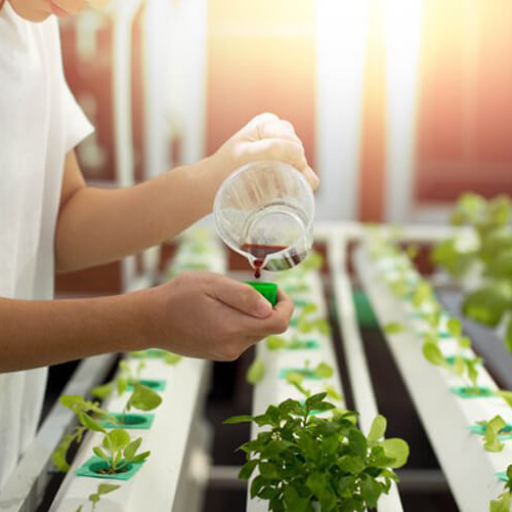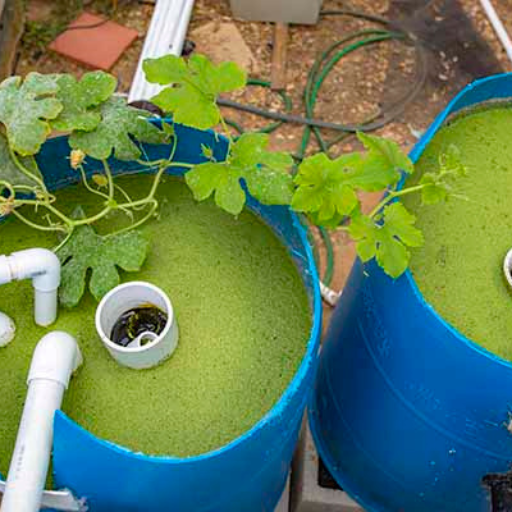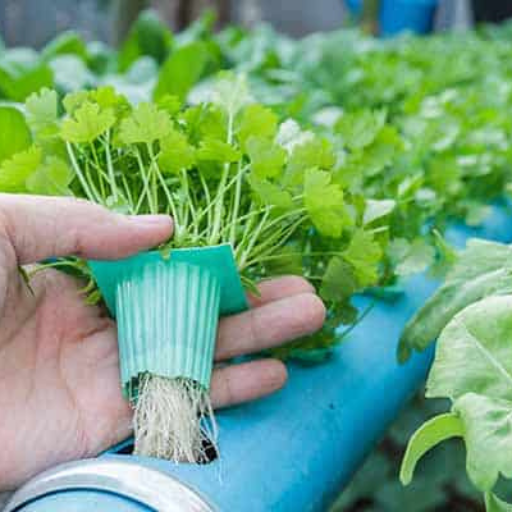Growing plants hydroponically has gained significant popularity among gardening enthusiasts and professionals alike. This method, which involves cultivating plants in a soilless environment, relies heavily on nutrient-rich solutions to ensure plant health and productivity. For those committed to organic gardening, finding the best organic nutrients for hydroponic systems is essential. In this article, we will explore the advantages of using organic nutrients in hydroponics, discuss the various types of organic hydroponic nutrients available in the market, and provide recommendations on the best products to enhance your hydroponic garden. Whether you are a beginner or an experienced hydroponic gardener, this guide aims to equip you with the knowledge needed to optimize your garden’s growth and sustainability.
What is Organic Hydroponic Fertilizer?

Understanding the Basics of Organic Nutrients
Organic hydroponic fertilizer is derived from natural sources such as plant, animal or mineral origins and contains no synthetic chemicals. This means they supply essential building blocks for plant growth including nitrogen, phosphorus, potassium and trace minerals in a form that can be easily absorbed in a hydroponic system. The first benefit of employing organic nutrients is the fact that they tend to make plants grow healthier while reducing the danger of chemical residues thereby reflecting more eco-friendly and sustainable gardening.
Comparing Organic vs. Synthetic Hydroponic Nutrients
A comparison between these two types of nutrients shows different aspects in terms of composition, advantages, and probable effects on plants as well as the wider environment. Organically-grown hydroponics nutrients are obtained from natural sources with complex compounds broken down slowly by microorganisms thus providing a consistent nutrient base to plants. Such slow release nature may lead to better health and growth of plants over time. On the other hand, synthetic hydroponics fertilizers are made up of readily available inorganic salts that supply immediate nutrition but might result into faster nutrient depletion causing possible build-up of chemicals within the growing medium. Although synthetic fertilizers often offer accurate regulation over levels of nutrients and are usually cheaper, organic fertilizers are commended for their environmental advantages which promote sustainable farming methods instead. In summary, it depends on what goals a gardener has whether he/she wants instant outcomes and economy or future safety for his/her vegetation.
Why Choose Organic Hydroponics?
While immediate results could be offered by synthetic-based hydroponics systems; there are several key benefits provided by organic hydroponics which makes it attractive to many horticulturists. By making use of natural nutrients that enrich soil biodiversity and encourage beneficial microbial activity, organic hydroponics ensures stronger and healthier plant growths. It eliminates the risk of dangerous residues left behind after harvesting leading to long term human health conditions. Moreover, organic hydroponics is eco-friendly and it helps in minimizing pollution as well as promoting sustainable agriculture. Further, through organic hydroponics, premium quality produce is often obtained which has better taste and nutritional value than conventionally grown hydroponic vegetables. Such attractions are the reasons why health conscious gardeners or people who care about the environment choose organic hydroponics over others.
How to Prepare Organic Nutrient Solutions for Hydroponics?
Ingredients vital for Organic Nutrient Solutions
Creating efficient hydroponic organic nutrient solutions requires mixing together different natural components that have essential plant nutrients. Here are the must-have elements:
- Compost Tea: This tea is full of beneficial microorganisms which contain nitrogen, potassium and phosphorus among other elements that are necessary for a sound root environment and important microbial activity.
- Fish Emulsion: It acts as an excellent source of nitrogen and other necessary nutrients from fish processing, industry waste products that assist in promoting the green lush vegetative growth.
- Seaweed Extract: The marine algae gives it life and helps plants to use micronutrients, vitamins and hormones. It makes the crops strong, assists roots in growing well as well as improves the whole plant growth process.
One may mix these ingredients in appropriate proportions before diluting them for their hydroponics system’s specific needs.
Step-by-Step Guide on How to Create Nutrient Solution
Gather Ingredients:
- Compost Tea
- Fish Emulsion
- Seaweed Extracts
Dilution:
- 1 part compost tea + 1 part fish emulsion + 1 part seaweed extract = big container.
- Pour water into this mixture at a ratio of 10 parts water per one part nutrient solution to provide suitable concentration for your plants’ needs.
Mix Thoroughly:
- It is mixed until all the ingredients blend completely with one another.
Check pH Level:
- This can only be determined by using a pH meter which should be between 5.5-6.5; should it stray further then amend it by adding either pH up or down solutions to maintain within this range.
Application:
- Pour your prepared nutrient solution into your hydroponic system reservoir.
- Observe plant growth and health carefully so as to change out your nutrient solution appropriately according to needings or development changes throughout plants lives.
Thus, following those steps will help you come up with balanced and effective organic nutrient solutions that are specific to your hydroponic plants’ correct growth requirements.
Maintaining Balanced Plant Nutrition
Balanced plant nutrition is important in a hydroponic system so as to achieve the optimal growth of plants. It requires regular monitoring and adjustments. First, make sure to check the pH of the nutrient solution often and ensure it stays between 5.5 and 6.5 because anything above or below this range can lead to nutrient lockout, causing plant stress and inhibiting proper nutrient uptake.
Secondly, monitor the electrical conductivity (EC) in your nutrient solution. The EC value gives an idea about how concentrated your nutrients are thus helping you not overfeed or underfeed your crops at all. Adjusting EC according to crop developmental stages is good practice: for example, seedlings need lower EC compared to mature stage plants.
Thirdly, keep a consistent nutrient schedule by changing out the nutrient solution frequently say after every one to two weeks; this prevents salt buildup while ensuring availability of fresh nutrients all the time. Balance is achieved through providing right proportions of both macronutrients (nitrogen, phosphorus & potassium) and micronutrients (such as calcium, magnesium & trace elements) that are best suited for your specific crop. By following these guidelines you will be able to maintain a healthy productive hydroponic system.
How to Apply Organic Fertilizer in a Hydroponic System?

Using Organic Fertilizers Hydroponically—Some Best Practices
To use organic fertilizers in a hydroponic system, you need to be careful in your selection and management of them to ensure effective nutrient delivery. Here are some best practices that you could consider:
- Pick the Right Organic Fertilizer: Not all organic fertilizers will work for hydroponics. Search for products specifically formulated for hydroponics or those that dissolve easily in water. In comparison with solid forms, liquid organic fertilizers are usually easier to assimilate into a hydroponic system.
- Ensure Adequate Filtration: Organic fertilizers sometimes contain particles which could block your hydroponic system. The use of fine mesh filters can prevent obstructions among other things they allow enough nutrients to dissolve as well as spread around.
- Monitor pH and EC Levels: pH and EC levels may fluctuate when organic fertilizers are used. To maintain optimum growth conditions, it is important to monitor the pH regularly and keep it within the range 5.5 – 6.5 while taking note of any EC variations that may affect nutrient concentration for proper plant nutrition.
- Supplement with Microbes: In combination with beneficial microbes, organic fertilizers often work more effectively. Such microbes break down organic matter into forms which plants can easily take up thus increasing nutrient availability and uptake.
- Regularly Clean and Maintain Your System: Organic fertilisers leave residues in the nutrient solution as well as system components over time hence require regular cleaning and maintenance of the hydronic set up so that there is no negative impact on plant growth but rather an optimal performance is achieved.
These guidelines will help you use organic fertilizers to promote healthy plant growth in your hydroponic system.
Monitoring Nutrient Levels and Plant Health
In hydroponics, monitoring nutrient levels and plant health play a vital role in attaining optimal growth and yields.The three key steps involve:
- Regular Nutrient Solution Testing: The nutrient solution in the hydroponics should be tested on a regular basis using a reliable digital pH meter and EC (Electrical Conductivity) meter. By using these tools, you can ensure that the pH and nutrient concentration are within an ideal range for your plants, which is normally between 5.5-6.5 for pH(nutrient availability) and specific EC value depending on the plant type.
- Visual Plant Inspections: A visual inspection of plants is essential to identify any deficiencies or toxicities that may occur, such as leaf discoloration, spotiness or stunted growth. Close monitoring of the physical condition of the plants allows for early identification and rectification of nutritional imbalances.
- Routine System Maintenance: Cleanliness and maintenance practices should always be observed in order to prevent clogging and residues build-up in hydroponic systems thereby affecting nutrient availability. Proper maintenance results into balanced nutrients delivery which ensures healthy plant development.
By following these practices, optimal nutrient levels and plant health will be maintained resulting into successful hydroponic garden.
Adjusting Nutrient Solutions Based on Plant Growth Stages
To achieve maximum plant health and productivity in hydroponics, one has to adjust their nutrient solutions according to plant growth stages. Different nutrient ratios are necessitated during each stage namely; seedling, vegetative, flowering as well as fruiting stages.
- Seedling Stage: At this initial phase, plants require higher phosphorus levels to develop strong roots.Do not let the nutrient solution grow too strong(about half than it would be if they were full grown), otherwise delicate roots could get burnt instead promote healthy root system formation.
- Vegetative Stage: Plants that are growing need more nitrogen so that leaves and stems can develop.A higher nitrogen concentration is introduced into nutrients while phosphorus and potassium remain balanced during this stage.
- During flowering and fruiting: Decrease the nitrogen content while raising phosphorus and potassium levels in order to assist bud formation and fruiting. A suitable ratio in a nutrient solution can be increased potassium so as to improve flower and fruit quality.
By adjusting the composition of the nutrient solution according to the specific developmental stages, it fosters strong plant development leading to increased output as well as improved quality of produce.
What Are the Benefits of Organic Hydroponic Fertilizers?

Enhanced Plant Growth and Yield
Feasibly, organic hydroponic fertilizers have a range of advantages that contribute to improved plant growth and yield. The essential thing is that they provide a well-balanced nutrient supply needed for the general healthiness and vigor of plants. These fertilizers release nutrients slowly over time thus sustaining constant supply leading to consistent growth. Organic fertilizer additionally improves the structure of soil hence improving water retention as well as root aeration which is very important for strong root development. Also, by utilizing organic fertilizers it is possible to increase the microbial activity in the growing medium contributing to better plant environment through introducing beneficial microbes that aid in nutrient absorption. Therefore, using organic hydroponic fertilizers helps improve crop yields while keeping produce quality high without any chemical residues from use of synthetic fertilizers.
Environmental and Health Benefits
The usage of organic hydroponic fertilizers has great environmental and health benefits. They reduce reliance on synthetic chemicals which can contaminate water sources or pose risks to ecosystems. In many cases they are derived from renewable sources and apply sustainable practices thereby reducing the associated carbon footprint.
When it comes to our health, using organic hydroponic fertilizers has zero possibility for chemical exposure among farmers as well as those who consume them. Crops grown using natural manure do not contain residues from harmful pesticides making them safe for consumption. Moreover, organically produced fruits and vegetables are richer in nutrients than their conventionally grown counterparts hence promoting good health among consumers. By advocating for the application of organic hydroponic fertilizers we could encourage agricultural practices that will be more sustainable thus benefiting both us and the planet.
Challenges and Solutions for Organic Hydroponics
Challenge: Nutrient Availability
- Organic fertilizer usually takes longer time compared with synthetic versions when it comes to releasing nutrients; this makes maintaining precise nutrient levels difficult in hydroponics systems.
Solution:
- To overcome this challenge, use high quality compost teas or liquid organic fertilizers specifically made for hydroponics. Regularly monitoring and adjusting nutrient levels can help ensure plants get the nutrients they need.
Challenge: pH Management
- Organic fertilizers may cause PH level fluctuations affecting nutrient absorption and overall plant health.
Solution:
You should keep testing and correcting the pH of your hydroponic solution. Ideally, one should aim to maintain their pH levels in between 5.5 and 6.5 for optimal nutrient uptake purposes. This is because the use of pH buffers helps to maintain a more constant environment.
Challenge: Microbial Management
- More microbially imbalanced where microbes are less natural causing root diseases and poor plant condition are experienced in organic hydroponic systems than in conventional ones.
Solution:
- Include some beneficial microbes as well as bio-active compounds within the system which can build a conducive environment against harmful pathogens. Besides proper aeration, regular cleanings will also support microbial health.
Challenge: Certification Standards
- Because of strict regulations it can be very hard to meet organic certification standards using hydroponic systems.
Solution:
- One needs to keep updated on what the latest organic certification necessitates as well as ensure that all inputs and management approaches are compliant. In addition, during system design phases, it may also be helpful to consult with certifying bodies so as to facilitate adherence.
By adopting these solutions, common challenges faced by practitioners in organic hydroponics can be addressed resulting in healthier plants and more sustainable growing methods.
How to Manage Pests and Diseases in an Organic Hydroponic Garden?

Differentiating Common Pests and Diseases
When managing pests and diseases in my organic hydroponic garden, it is important to identify common culprits. Some of the most frequent insects that I come across include aphids, whiteflies, and spider mites. These minuscule insects are usually a common cause of plants being weakened through sucking sap from them or spreading diseases. Furthermore, other problems caused by fungi such as powdery mildew and root rot which develop in the wet conditions present in hydroponic systems are also common among my plants. Therefore, observing plant health closely as well as adopting integrated pest management approaches are some ways I use to deal with these challenges.
Organic Pest Control Methods
To keep away common pests in my organic hydroponic garden, I depend on several natural approaches for pest control. One of these techniques is bringing in good bugs like ladybugs and predatory mites that feed on aphids, whiteflies, and spider mites naturally. Also, I usually spray neem oil and insecticidal soaps to repel pests without causing any harm to my plants or the environment around me. Another important thing that must be done is continuously cleaning equipment and removing dead or infected leaves or stems (these encourage fungal infections like powdery mildew and root rot) regularly from time to time. All this when combined can enable me have a successful hydroponics.
Preventing and Treating Plant Diseases Organically
Plant disease prevention and treatment requires taking proactive measures as well as using organic methods in my organic hydroponic garden. Initially, I always ensure there’s enough air movement between one plant another by spacing them properly apart while using fans aimed at reducing humidity (which discourages growth of fungi). Additionally ,water pH levels need regular monitoring along with nutrient contents thus maintaining an equilibrium needed for plant growth. Thus when diseases appear like powdery mildew or root rot then I use: A mix of baking soda and water or hydrogen peroxide (as organic treatments) to eliminate fungal infections. Furthermore, I also opt for crop rotation as well as planting resistance crops varieties that can help me avoid running into the same problems time and again. When combining these organic practices, it keeps my garden healthy and resilient against diseases.
Frequently Asked Questions (FAQs)

Q: What are organic hydroponic nutrients?
A: Organic hydroponic nutrients are plant nutrients that come from natural resources and are utilized for growing plants in a soilless, hydro systems. To be recognized as certified organic, these nutrients have to conform to the national organic standards board.
Q: Why should I use organic nutrients in a hydroponic growing system?
A: Using organic nutrients in hydroponic growing system enhances plants with essential plant foods that are found naturally, improves root zone health and promotes sustainable agriculture practices which do not depend on synthetic chemicals.
Q: Can all plants grow hydroponically using organic nutrients?
A: Yes! Many people have grown lots of different plants successfully under hydronic conditions with the help of these kinds of feeding formulae. But this will only happen when there is careful handling and correct proportioning of the right variety of these organics.
Q: Are organic hydroponic nutrients compatible with all hydroponic growing systems?
A: Organic hydroponic nutrient is compatible with many types of hydro methods like Deep Water Culture (DWC) and nutrient film technique if the growth system can handle organics without blocking or other related problems.
Q: How do organic hydroponic nutrients differ from conventional hydroponic nutrients?
A: Organic Hydro Nutrients instead come from natural sources with them being certified as being “organic” while their opposite counterparts in most instances are synthetic. Having beneficial microorganisms to improve nutrient uptake and promote better root zone through interactions, they may enhance it more than conventional ones containing conventional constituents.
Q: Is it possible to prepare a homemade organic hydroponic nutrient solution?
A: Yes! Many growers prepare such solutions by using compost extracts, natural plant-based liquid fertilizers among other materials obtained from nature for their nourishing solutions. However, such manures must be soluble and balanced for easy absorption by crops.






